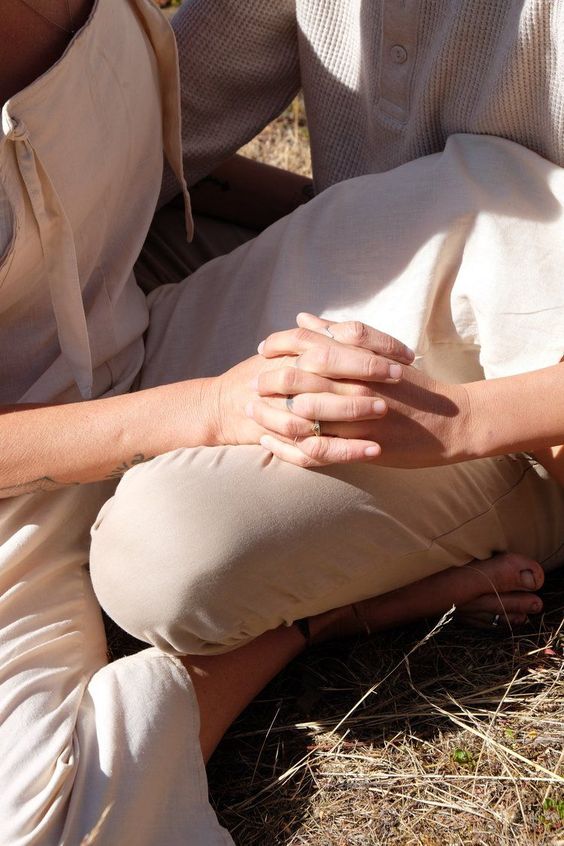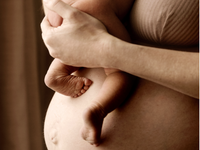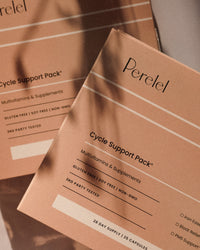In celebration of Pride Month and our commitment to supporting every fertility and family planning journey, we are diving into fertility statistics, with a focus on the LGBTQ+ community.
Remarkably, 63% of LGBTQ+ millennials are considering expanding their families. However, the financial burden and obstacles for members of this community to become parents can be as high as $175,000.
To raise awareness, offer support and encourage change, we compiled information and resources that explore the importance of fertility advocacy for the LGBTQ+ community – including a comprehensive list that aims to assist LGBTQ+ community members on their path to parenthood.
The Added Cost of LGBTQ+ Parenting
The increased cost of parenting for members of the LGBTQ+ community can stem from a variety of factors.
- Reproductive costs: This umbrella term covers the expenses associated with planning a family, including surrogacy, sperm or egg donation and IVF treatments.
- Potential adoption fees: Adoption can be very expensive, with costs reaching up to $50,000. These expenses encompass agency fees, legal fees, home studies and other relevant charges.
- Legal fees: LGBTQ+ families are often required to secure legal recognition of both parents, which may involve second-parent adoption or other legal processes to ensure parental rights. This can cost thousands of dollars. Surrogacy and egg and sperm donations also typically require expensive legal contracts to protect all parties involved in the process.
- Healthcare and insurance: Many healthcare plans in the United States don’t cover fertility treatments for people in the LGBTQ+ community unless they meet very specific infertility requirements and definitions, which often don’t apply to LGBTQ+ families in the first place since they aren’t trying to conceive naturally. This leads to having to pay out-of-pocket, which can get very pricey.
- Travel costs: Due to varying state laws, some LGBTQ+ families may need to pay to travel to different states where fertility treatments, surrogacy, or adoption are more accessible and legally recognized, adding to their overall costs.
These financial barriers highlight the need for policies and insurance coverage that support fertility equality for the LGBTQ+ community.
Fertility by the Numbers: LGBTQ+ Community
- 63% of LGBTQ+ millennials (ages 18-35) are considering expanding their families
- An estimated 2 million LGBTQ+ people are interested in adopting
- Up to 10% of fertility-clinic patients are LGBTQ+
- Queer couples represent one-third of donor-sperm users
- The average cost of surrogacy for gay couples can be up to $175,000
Now that you’ve read through these stats, revisit them and keep in mind that members of the LGBTQ+ community have a very different experience when it comes to accessing fertility care. They often face barriers, as mentioned above, which has led to calls for fertility equality.
Advocating for Fertility Equality
What is Fertility Equality? Fertility equality is a movement that focuses on a future where the ability to create a family is not determined by wealth, sexuality, gender or biology. Advocates are pushing to help make family planning and building a more equal landscape. This includes encouraging insurance companies to cover reproductive procedures for LGBTQ+ couples and supporting policies like the 2017 Uniform Parentage Act, which is essential to ensuring legal parentage for LGBTQ+ parents, though laws vary greatly by state.
Resources for LGBTQ+ Parents-to-Be
Feeling supported and informed is important, no matter what stage of family planning you’re in. Whether you’re considering building a family, in the process of finding an egg or sperm donor or considering candidates for surrogacy, having the right resources is critical. Here are some resources for members of the LGBTQ+ community who are navigating their reproductive health and fertility journeys.
Mental Health & Counseling
Communities & Organizations
- Family Equality
- Our Family Coalition in California
- COLAGE
- National Center for Transgender Equality
- Trans Health
- Trans Health Org
Reproductive Health Information
Affirming LGBTQ+ Centers and Clinics
- LA LGBT Center
- SF LGBT Center
- Fenway Health
- Mazzoni Center
- Callen-Lorde
- Queer Med
- Center on Halsted
- UCSF Center of Excellence for Transgender Health
Informative Books
- Baby Making for Everybody: Family Building and Fertility for LGBTQ+ and Solo Parents by Marea Goodman, LM, CPM ($15)
- Building Your Family: The Complete Guide to Donor Conception by Lisa Schuman & Mark Leondires ($30)
- You'll Be a Wonderful Parent: Advice and Encouragement for Rainbow Families of All Kinds by Jasper Peach ($17)
- Roads to Family: All the Ways We Come to Be by Rachel HS Ginocchio ($32)
- Immaculate Misconception: A Story of Biology and Belonging by Dr. Gwen Bass ($17)
How to Be an Ally
Here's how you can advocate for fertility equality and support LGBTQ+ parents-to-be and families.
Educate yourself and others
Stay informed by doing your best to understand the unique challenges that LGBTQ+ individuals and families face when it comes to accessing fertility services. Do your research online, read relevant books and ask your LGBTQ+ friends for specific ways that you can be helpful and supportive.
Raise awareness by sharing the information you learn with other people so they can also be informed.
Advocate for inclusive policies
Support relevant legislation. As an ally, if you’re talking the talk, you need to walk the walk. This means making an effort to advocate for the laws that protect members of the LGBTQ+ community who are trying to build a family.
Push for equality in insurance coverage. Encourage your employer to offer inclusive fertility benefits as part of the health insurance plans and packages that are offered to employees.
Support organizations that are doing the work
Volunteer your time. This can include offering your time and skills to organizations that support LGBTQ+ families and focus on advocating for fertility equality.
Take action by participating in events and fundraisers that support fertility equality and LGBTQ+ parents and family planning.
Donate money to organizations that are working to make fertility treatments and adoption more accessible for LGBTQ+ individuals and families. You can also do some of your own research and look for scholarships, funds or grants that help LGBTQ+ families pay for fertility treatments and adoption fees.
Create and foster inclusive environments
Normalize the journey for LGBTQ+ families by sharing diverse family stories with friends and people in your community.
Consume media that highlights LGBTQ+ families. This could include reading books or watching shows that showcase different family structures and creation stories. Be sure to share the books and shows with your own family, friends and community, as well.
Provide hands-on support
Pitch in to help the LGBTQ+ families in your life and community with tasks – both big and small – like assisting with childcare or navigating the legal process, if you have helpful knowledge or resources to share.
By understanding the challenges and advocating for change, you can help create a world where everyone has an equal opportunity to build a family.
Read next: Rediscovering your sexual identity, blended families and IVF for LGBTQ+ with Linda Fruits. Plus, shop doctor-made vitamins for each unique stage of your reproductive health journey now.
References:
- FamilyEquality.org, 2019
- Gates, G. “LGBT Parenting in the United States.” Williams Institute, UCLA School of Law, 2013
- New York Times, 2020
- Fertility and Sterility Journal, 2017
- Family Match Consulting, 2022




















